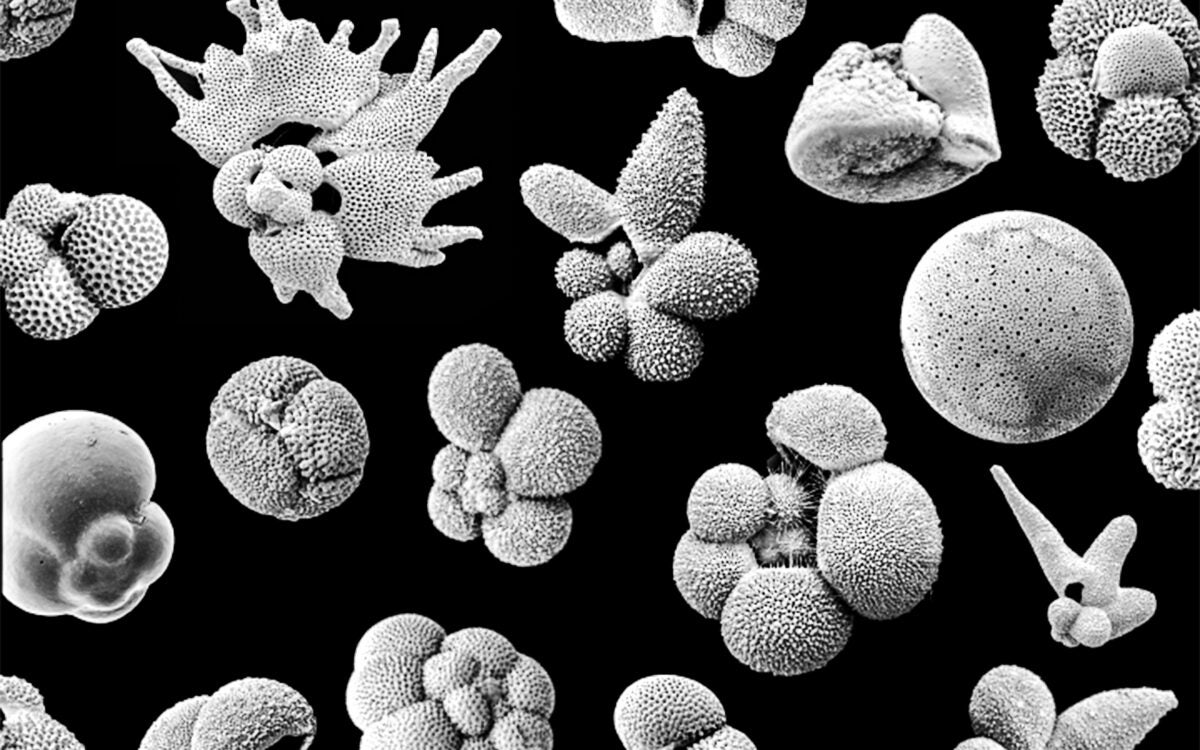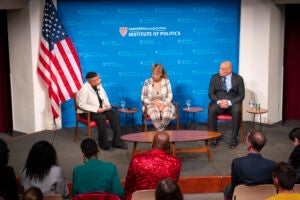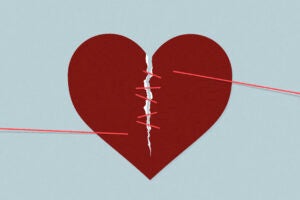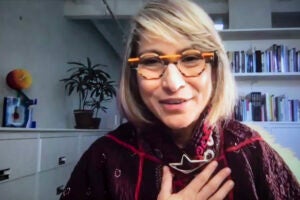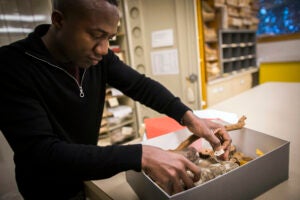Tag: bias
-
Nation & World
Would Russia have invaded if it wasn’t just one man making call? Possibly
Josh Kertzer looks at Russia’s decision to invade Ukraine and asks would it have happened if a group had made the call instead of just one man?
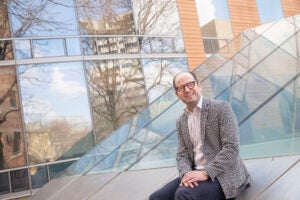
-
Nation & World
2 early vaccination surveys worse than worthless thanks to ‘big data paradox,’ analysts say
As governments and health officials navigate pandemic, researchers stress the danger that comes with bad information.

-
Nation & World
An emergency response team for data?
Data science provides a foundation for an important front in the battle against COVID-19. The Harvard Data Science Review, a journal of the Harvard Data Science Initiative, is helping keep data scientists connected and up to date on the latest findings.

-
Nation & World
How rape culture shapes whether a survivor is believed
New political science research from Harvard Kennedy School faculty and alumna finds that rape culture bias not only is real, but it shapes how people determine what a believable case looks like, who is likely a victim, and in what circumstances rape is less likely to take place.
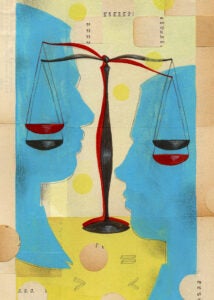
-
Nation & World
Who’s that girl?
New research suggests a country’s degree of gender equality can shape men’s ability to recognize famous female faces.
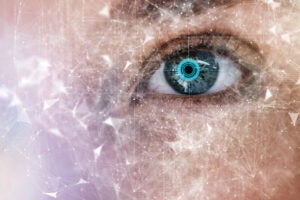
-
Nation & World
When machines rule, should humans object?
Harvard scholars shared concerns and ideas in a HUBweek panel titled “Programming the Future of AI: Ethics, Governance, and Justice.”
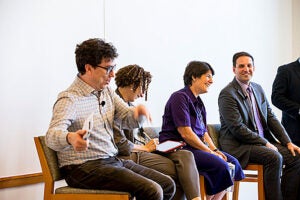
-
Nation & World
When bias hurts profits
Based on data collected from a French grocery store chain, a new Harvard study has found that minority workers were far less efficient in a handful of important metrics when working with biased managers.
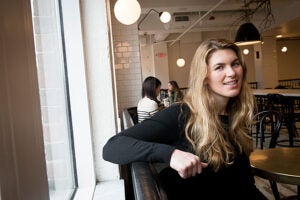
-
Nation & World
Fighting unfairness
A new study by Harvard scientists suggests that, from a young age, children are biased in favor of their own social groups when they intervene in what they believe are unfair situations. But as they get older, they can learn to become more impartial.
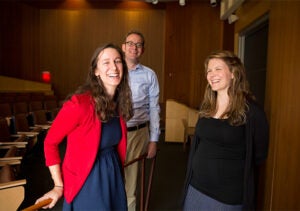
-
Nation & World
Biases that can blind us
Psychology Professor Mahzarin Banaji gave incoming members of Harvard’s Class of 2017 a tour of their own biases, helping to raise awareness that can help them avoid making decisions based on unconscious preferences.
-
Nation & World
Seeking fairness in ads
Latanya Sweeney, Harvard professor of government and technology in residence, wants to add a new factor to the weighting Google uses when delivering online ads, one that measures bias. In a new paper, she describes how such a calculation could be built into the ad-delivery algorithm Google uses.
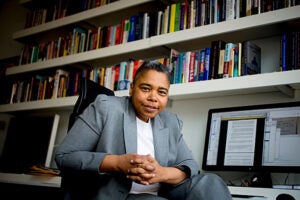
-
Nation & World
Peering into our blind spots
Harvard psychologist Mahzarin Banaji and longtime collaborator Anthony Greenwald condense three decades of work on the unconscious mind in “Blindspot: Hidden Biases of Good People.”

